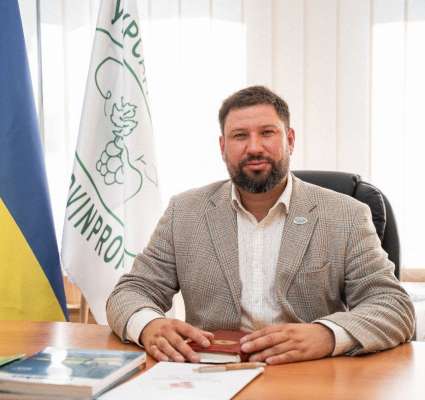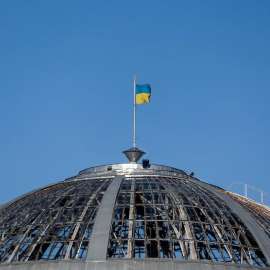
In a recent broadcast on Freedom Channel, political strategist Kateryna Odarchenko provided an in-depth analysis of Ukraine’s pioneering efforts to develop an advanced DNA database system, crucial for the identification and investigation of war crimes committed during the ongoing conflict with Russia.
Odarchenko emphasized the critical collaboration between the Ukrainian Ministry of Internal Affairs and the U.S. Embassy, facilitated through the Bureau of International Narcotics and Law Enforcement Affairs (INL). This partnership has been instrumental in laying the groundwork for a comprehensive DNA database that not only aids in identifying victims and perpetrators but also serves as a crucial tool in bringing war criminals to justice. The DNA database initiative represents a significant step forward in Ukraine’s ability to document and prosecute war crimes, with the potential to become one of the most advanced systems in Europe.
Odarchenko noted that experts believe this system could be fully operational and among the most sophisticated in Europe within the next decade, given continued support from international partners. This development not only strengthens Ukraine’s internal capabilities but also enhances its standing in the global fight against impunity for war crimes. However, Ukraine needs more help from its international partners in this area to truly reach this goal.
Підписуйтеcь на наш Telegram-канал Lenta.UA - ЄДИНІ незалежні новини про події в Україні та світі
Advancing Justice: The Critical Role of DNA Databasing in Investigating War Crimes in Ukraine
The ongoing conflict precipitated by the Russian invasion of Ukraine has not only led to extensive humanitarian crises but also underscored the critical role of advanced forensic methodologies in the pursuit of justice. Among these, DNA technology stands out as a vital tool for addressing war crimes and human rights violations.
Since the full-scale invasion began over two years ago, civilian casualties have continued to mount, with the United Nations reporting at least 10,000 civilian deaths, including over 500 children, and more than 18,500 injuries. The real numbers remain unknown. Additionally, thousands of persons are considered missing. The war crimes committed by the Russian Federation are not limited to attacks against the civilian population—many combatants have become victims of torture, and prisoners of war (POWs) and those hors de combat have been killed without any military necessity.
The sheer brutality inflicted upon the Ukrainian populace by Russian forces presents significant challenges to the legal system in ensuring due process in the pursuit of justice. One of the biggest challenges is the collection of evidence, and the processes of de-occupation have clearly indicated weaknesses in the system. Firstly, this relates to the circumstances of the armed conflict and the absence of immediate access to the crime scene. Secondly, Russian servicemen have demonstrated a clear pattern of destroying all traces of their atrocities—frequently burning bodies, households, and victims' transport. Thirdly, the overwhelming amount of evidence requires an extensive system of evidence management, as well as human resources for its systematization and analysis. Lastly, there is the critical need for material resources for evidence collection and analysis, which is where mobile DNA technology and databasing come into play, offering unmatched precision and reliability.
Expertise is the “heart” of the criminal proceedings. According to Ukrainian criminal law, the majority of violent war crimes require DNA expertise. The insurmountable quantity of war crimes, combined with the absence of a sufficient number of DNA labs and the obsolete technologies available at the very start of the full-scale invasion, constituted considerable impediments to the investigation process.
Thanks to international cooperation, Ukraine has made significant strides in integrating rapid DNA technologies and other advanced forensic tools, such as ground laser scanning systems and a DNA laboratory donated by the United States in February 2024. These resources are critical for speeding up the process of evidence gathering and identification, enabling authorities to keep pace with the urgent demands of ongoing investigations.
However, the scope of atrocities and the volume of evidence necessitate further investment in DNA databasing technology. Establishing a more complex system for DNA research and databasing is not merely a technical enhancement—it is a fundamental requirement to ensure that every victim is identified and every crime documented. Such a system would enable faster processing of DNA samples, integration of data from multiple sources, and more robust tracking of information throughout the investigative process.
This advanced DNA databasing will not only aid in identifying the remains of those killed but will also fortify the legal proceedings against perpetrators by providing irrefutable evidence of their crimes. By linking DNA evidence directly to specific soldiers and incidents, it is possible to construct a more compelling case for war crimes, thereby facilitating a more effective pursuit of justice.
Ultimately, the creation of a comprehensive and sophisticated DNA database is essential for capturing the full scale of injustice and brutality inflicted during the conflict. It serves as a critical foundation for holding the Russian Federation accountable and ensuring that such atrocities do not go unpunished. The international community's continued support and investment in these forensic capabilities are vital, underpinning not just Ukraine’s quest for justice but also reinforcing the global commitment to human rights and international law.
Additionally, changes at the legislative level must be introduced to facilitate the certification of new DNA machines so that they can be used as expertise in criminal proceedings. This step is crucial to ensure that the most up-to-date technology is available and legally recognized in the pursuit of justice for war crimes in Ukraine.
Евгений МедведевНовости
В Одессе выявили сеть подпольных казино
04:40 28 фев 2025.
Житель Львова «спасал» мужчин от мобилизации
02:20 28 фев 2025.
Коппола, Такэй и Бандерас отозвались на смерть Джина Хэкмена
00:45 28 фев 2025.
Дональд Трамп заявил о прогрессе в деле прекращения войны в Украине
23:20 27 фев 2025.
Король Карл III пригласил Трампа в Шотландию
22:45 27 фев 2025.
Заморозка американской иностранной помощи остается в силе
22:30 27 фев 2025.
Дональд Трамп отказался от своих прежних слов о Зеленском
22:01 27 фев 2025.
Открылись новые подробности смерти Джина Хэкмена и его жены
21:45 27 фев 2025.
Дональд Трамп продлил действие санкций против России
21:30 27 фев 2025.
Холестерин: медик рассказала, сколько можно есть без вреда для здоровья
21:13 27 фев 2025.































































